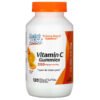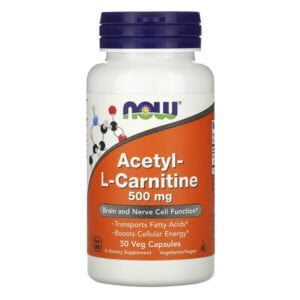Life Extension, Ascorbyl Palmitate, 500 mg, 100 Vegetarian Capsules
| Supplement Facts | ||
| Serving Size: 1 Vegetarian Capsule | ||
| Amount Per Serving | % Daily Value | |
| Vitamin C (from 500 mg ascorbyl palmitate) | 200 mg | 222% |
Description
- Fat Soluble Vitamin C
- Dietary Supplement
- Non-GMO LE Certified
Getting enough vitamin C is important to your overall health. Maintaining optimal levels of vitamin C can help promote longevity. This form of vitamin C can cross cell membranes and other biological barriers, delivering free radical-scavenging ascorbic acid to regions that would otherwise be unreachable.
Ascorbyl Palmitate Benefits
- Provides fat-soluble antioxidant protection
- Reaches tissue areas ascorbic acid cannot
- Maintains optimal levels of circulating ascorbic acid longer than ordinary ascorbic acid
Ascorbyl palmitate (AP) is an ester formed from ascorbic acid and palmitic acid creating a form of vitamin C that is fat-soluble, meaning it can interact with lipid-based molecules. Unlike naturally-occurring vitamin C (ascorbic acid), which is strictly water-soluble, ascorbyl palmitate is able to cross cell membranes and other biological barriers. This characteristic gives it special applications for delivering free radical-scavenging ascorbic acid to otherwise unreachable parts of the body.
Ascorbyl palmitate has been shown to help inhibit oxidative stress to lipids and protects red blood cells, endothelial cells and brain and nerve tissue from free radicals. Scientific evidence suggests ascorbyl palmitate can maintain high levels of circulating ascorbic acid longer than ordinary ascorbic acid. It also helps maintain intracellular ascorbic acid levels and has demonstrated greater ability to help inhibit oxidative stress and free radical damage to lipids and DNA, and inhibit glycation of proteins inside human cells compared to ascorbic acid.
Ascorbic acid makes up 40% of the ascorbyl palmitate molecule by weight; however, ascorbyl palmitatex99s activity cannot readily be compared to that of ascorbic acid because the two molecules have different activities in the body.







Reviews
There are no reviews yet.